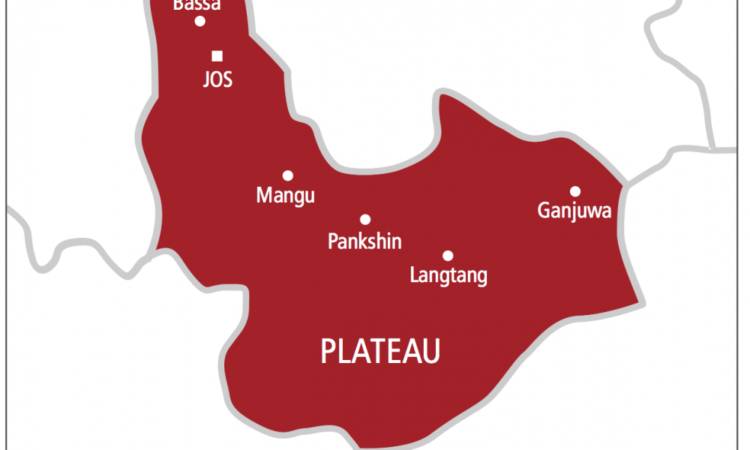Nigeria has announced a new 10-year Strategic Action Plan (2026–2035) aimed at transforming its agricultural sector through youth-led innovation. Vice President Kashim Shettima has declared the initiative a bold step toward achieving sustainable food systems and national resilience.
Speaking on Tuesday at the high-level dialogue between African youth agri-food entrepreneurs and African leaders during the UN Food Systems Summit Stocktaking Moment (UNFSS+4) in Addis Ababa, Ethiopia, Shettima said the plan aligns with Nigeria’s national framework for implementing the Comprehensive Africa Agriculture Development Programme (CAADP) Kampala Declaration (2026–2036).
“A nation that is prepared for the future is not known by the promises it makes, but by the place it gives its youth in shaping those promises,” the Vice President said, stressing that youth-led innovation must be at the core of Africa’s food systems transition.
According to him, Nigeria has already inaugurated an Agricultural Sector Working Group and a Technical Committee to oversee the implementation of the Kampala Declaration. The forthcoming strategic plan, he said, will align national and subnational priorities, deepen public-private partnerships, and institutionalise youth participation at all levels.
The Federal Government, Shettima disclosed, has recapitalised the Bank of Agriculture with ₦1.5 trillion ($1 billion), targeting the empowerment of youth-led agribusinesses through loan offerings of up to ₦1 million for eligible young farmers and cooperatives.
“This is not charity. It is strategic inclusion, resilience engineered into policy,” he said.
The Vice President highlighted Nigeria’s partnerships under the Youth in Agribusiness programme with the Netherlands, CGIAR and IITA, which is already reaching 10,000 youths, 40–50 per cent of them women, through innovation hubs in horticulture, aquaculture, cassava processing and poultry.
Other ongoing initiatives include the $1.1 billion Green Imperative Project with Brazil, designed to boost mechanised farming and value chain efficiency. He noted that the first batch of 2,000 tractors has been launched under a $70 million rollout, targeting over 550,000 hectares of land and supporting an estimated 550,000 farming households.
“In partnership with John Deere, we plan to deploy 10,000 tractors over five years,” Shettima said, adding that Nigeria’s approach was geared towards ending the export of raw commodities by investing in agro-processing, value addition, and rural livelihoods.
The forthcoming 10-year plan, he added, will prioritise agro-technology training, mentorship, and a robust monitoring and evaluation framework. “This is not a sprint, but a generational relay,” he said. “It requires collective action, strategic partnerships, and unwavering commitment to shared responsibility.”
Also addressing the plenary on Transforming Food Systems in Complex Settings, the Vice President revealed that Nigeria had committed $538.05 million to the first phase of its Special Agro-Industrial Processing Zones (SAPZ) programme. The initiative, supported by the African Development Bank (AfDB), IFAD, and the Islamic Development Bank (IsDB), seeks to revolutionise agricultural productivity and agro-industrialisation across the country.
Shettima disclosed that the programme has already created over 785,000 jobs and is projected to attract $1 billion in total investments by 2027. “It is designed to cut post-harvest losses by up to 80 per cent and stimulate rural economies,” he added.
To bolster national food security, he reiterated the Federal Government’s declaration of a State of Emergency on Food Security, the reactivation of over 500,000 hectares of arable land, strategic deployment of food reserves, and expanded access to seeds and extension services.
The Vice President also called for coordinated international collaboration to address climate impacts and unlock Nigeria’s agricultural potential. This includes recharging the Lake Chad Basin, scaling up irrigation infrastructure, establishing a national farm database, and investing in anticipatory climate action.
He stressed the importance of school feeding in conflict zones and resilience-building as tools for long-term stability. “Food security is the trust anchor of peace,” he asserted.
In her remarks, United Nations Deputy Secretary-General, Amina Mohammed, lamented rising global food insecurity, noting that “over 37 million children under five who faced acute malnutrition this year represent almost the entire population of Canada.”
She criticised short-term interventions that lack alignment with long-term development strategies, urging African leaders to adopt transformational approaches over dependency cycles.
“We must choose transformation over dependency. We need coordination as a people, not just bureaucracies,” she said. Commending leaders, including President Tinubu, she applauded efforts to embed resilience in national food systems through a fusion of digital, traditional, and local knowledge.
Other speakers at the summit included World Food Programme Executive Director, Cindy McCain; Somalia’s Deputy Prime Minister, Salah Jama; and Moubarack Roubo of Chad’s Ministry of Agricultural Production and Industrialisation.






